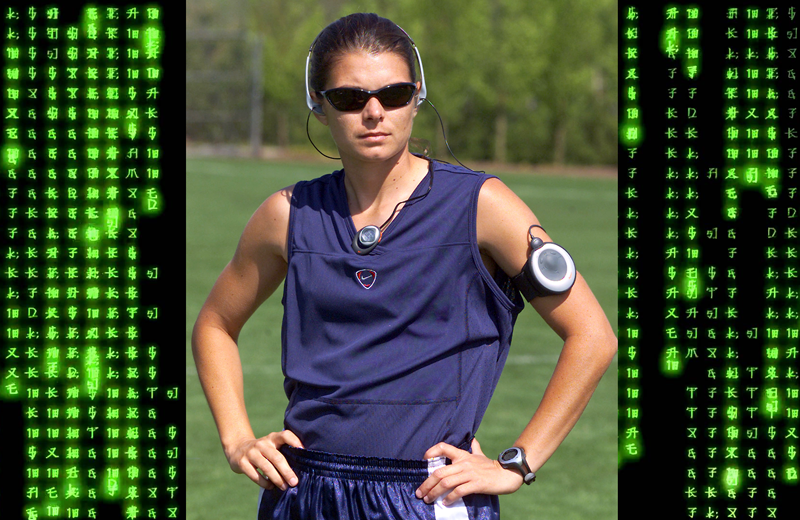Mental fatigue: can you harness it for performance?

In the past, performance in endurance sports was considered to be a purely physical phenomenon, and all about the heart, the lungs, and the muscles. Over time, that thinking has begun to change. There has been a growing awareness that when it comes to performance, other factors are also at play, particularly psychological. This no doubt explains why sport psychology has been part of sport for a long time.
Mental tiredness and performance
The influence of ‘non-physical’ factors in performance isn’t just related to thoughts and beliefs. It appears that the brain can get ‘tired’ as well. Every athlete has experienced training sessions that follow a hard day of school, studying, or work and discovered that performance isn’t quite as sharp as normal, even if the muscles themselves feel relatively fresh and recovered. But this isn’t just anecdotal evidence experienced by sportsmen after a long day at work or school. The negative influence of mental fatigue on endurance performance has been demonstrated in multiple studies(1).
While the specific protocols differed across the studies, the basic premise was the same in all cases. The subjects performed either some sort of mentally fatiguing protocol, or they performed a ‘placebo’ protocol where they simply rested quietly. In some studies, the subjects performed both so that they could be compared to themselves. The common finding was that when mental fatigue was induced first, endurance performance was compromised.
Leveraging fatigue for performance
While there is some disagreement as to what specifically is causing the decreases in performance, a common finding is that the rating of perceive exertion, or RPE, is higher in those individuals who have previously performed a mentally strenuous task. In other words, endurance performance simply feels harder in the presence of mental fatigue compared to when it’s not present.
It’s well known that physical training creates fatigue that impairs performance in the short-term and improves performance in the long-term. So could the mental fatigue that impairs performance be leveraged to improve performance in the long-term as well? In a study conducted a few years ago, a group of researchers decided to find out(2). The researchers had two groups of cyclist train over a 12-week period, with one group performing regular training and the group performed the same physical training with additional mentally fatiguing tasks were performed throughout the cycling, which was dubbed ‘brain endurance training’.
After the 12-week training periods both groups improved their performance on an endurance test, but the brain endurance training group improved to a significantly greater degree. During the endurance trial, the ratings of perceived exertion were significantly lower in the in the brain endurance training group. Interestingly however, improvements in VO2max (maximum oxygen uptake – a key measure of endurance fitness) were similar between groups. The combination of significantly lower ratings of perceived exertion and equivalent improvements in VO2max led the researchers to conclude that the additional benefits of ‘mental fatigue training’ are likely the result of adaptations in the brain, rather than the body. Not only does mental fatigue impair performance, it can be leveraged to improve performance over time as well.
The problem with this approach to brain endurance training is that it’s simply not practical. The subjects performed specifically designed tasks while cycling on controlled exercise bikes. Most athletes are not going to have access to equipment that allows them to simultaneously perform brain endurance training and physical training. And if you’re running or cycling outside, it’s probably not the safest activity in the world either! The next logical question is whether brain endurance training can be effective when performed separately from physical endurance training, making it much more practical and accessible to athletes. Fortunately, a recent study sought to answer that very question(3).
You need to be logged in to continue reading.
Please register for limited access or take a 30-day risk-free trial of Sports Performance Bulletin to experience the full benefits of a subscription. TAKE A RISK-FREE TRIAL
TAKE A RISK-FREE TRIAL
Newsletter Sign Up
Testimonials
Dr. Alexandra Fandetti-Robin, Back & Body Chiropractic
Elspeth Cowell MSCh DpodM SRCh HCPC reg
William Hunter, Nuffield Health
Newsletter Sign Up
Coaches Testimonials
Dr. Alexandra Fandetti-Robin, Back & Body Chiropractic
Elspeth Cowell MSCh DpodM SRCh HCPC reg
William Hunter, Nuffield Health
Keep up with latest sports science research and apply it to maximize performance
Today you have the chance to join a group of athletes, and sports coaches/trainers who all have something special in common...
They use the latest research to improve performance for themselves and their clients - both athletes and sports teams - with help from global specialists in the fields of sports science, sports medicine and sports psychology.
They do this by reading Sports Performance Bulletin, an easy-to-digest but serious-minded journal dedicated to high performance sports. SPB offers a wealth of information and insight into the latest research, in an easily-accessible and understood format, along with a wealth of practical recommendations.
*includes 3 coaching manuals
Get Inspired
All the latest techniques and approaches
Sports Performance Bulletin helps dedicated endurance athletes improve their performance. Sense-checking the latest sports science research, and sourcing evidence and case studies to support findings, Sports Performance Bulletin turns proven insights into easily digestible practical advice. Supporting athletes, coaches and professionals who wish to ensure their guidance and programmes are kept right up to date and based on credible science.









